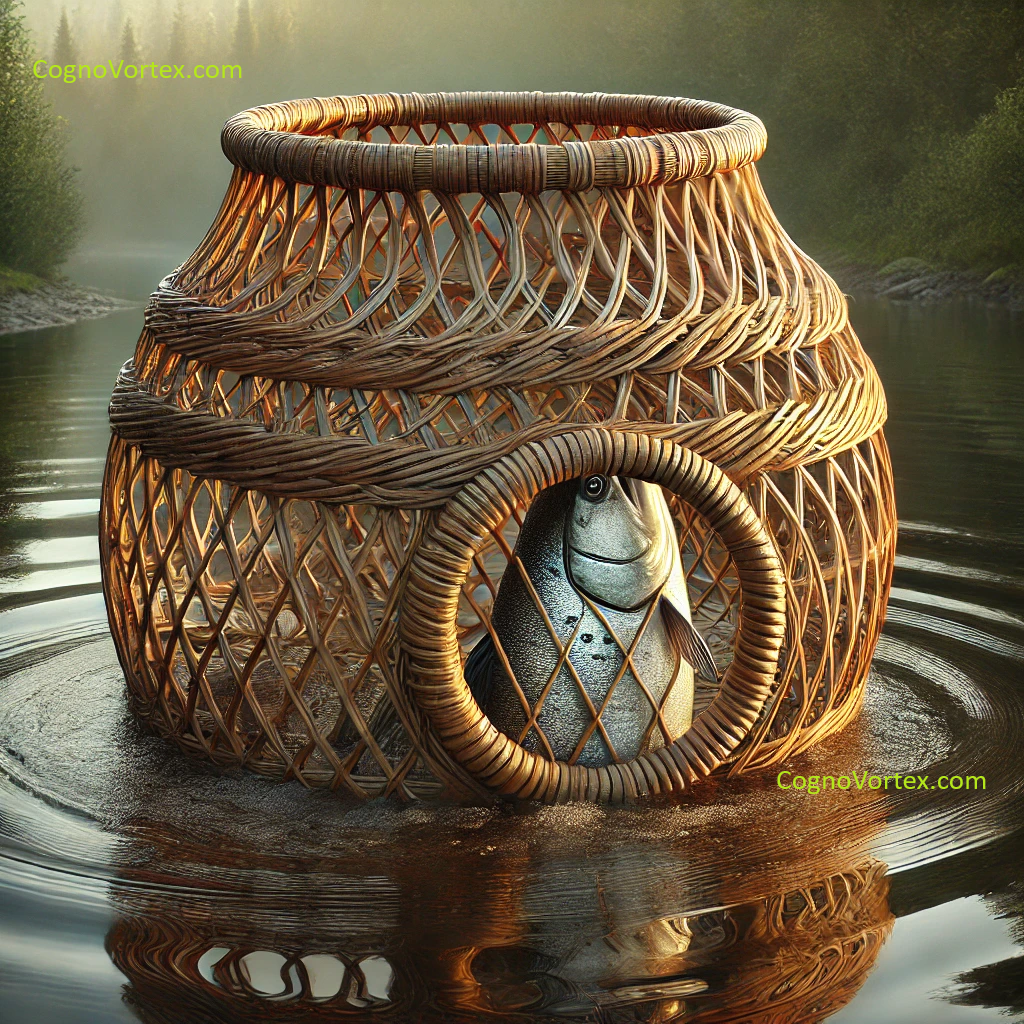The Fish, the Trap, and the Paradox of Pursuit
Zhuangzi’s metaphor of the fish trap, capturing the transient means by which purpose or insight is attained, suggests the way each of us traps ourselves within our pursuit. A fish trap, while essential in the act of catching, becomes obsolete the moment it succeeds; it fades into irrelevance the instant its function concludes. Zhuangzi’s fish and its trap bring the paradox to life: the tools we need to grasp something are often the very things we must discard to hold onto it.
Perceiving this, we might turn toward the numerous “traps” that clutter our minds, ones we’ve set in pursuit of ideas, identities, or beliefs. Are they traps because they are faulty? Or rather because, once they serve their function, clinging to them only stalls our ability to move forward? Like fish traps left long after a river is empty, they become residues of goals completed but not released. To live trapped within means designed for former purposes, each act of holding on transforms from pursuit into prison. For Zhuangzi, contentment arrives as we let go, dissolve, flow—move freely into what comes next, untrapped.
One might even go further: the very act of seeing the trap reveals the way forward. When we see it for what it is—simple, transient, a temporary facilitator of purpose—we’re invited to understand the absurdity of obsessing over it. Holding onto it while possessing what it was made to secure becomes redundant, turning necessity into burden. Zhuangzi’s call here, then, isn’t for callousness but for recognition: every trap is designed with an endpoint in mind. Once met, our freedom lies in allowing the remnants to fall away.
